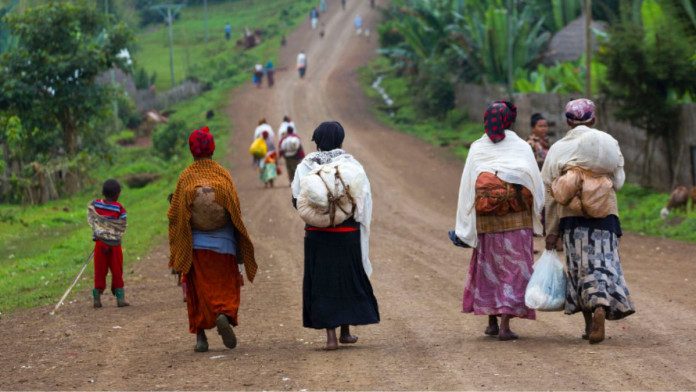News in Brief:
– Warwade villagers in Jigawa blame declining farming activities on abandoned dam, driving urban migration
– The state government have promised to rehabilitate it, but delays worsen the econmoic situation of the people.
Warwade, a rural community in Jigawa State, once thrived on the agricultural bounty provided by it dam. Constructed in the 1970s, this dam was initially intended to supply potable water but soon became the backbone of an irrigation farming system that significantly uplifted the local economy. The introduction of irrigation farming allowed the villagers to cultivate a variety of crops year-round, providing a stable food supply and economic prosperity, according to a coverage of the story.
However, due to poor maintenance and neglect, the dam and its irrigation channels have fallen into disrepair. This abandonment has had severe repercussions, not only diminishing agricultural productivity but also driving young men to seek menial jobs in distant cities like Lagos and Port Harcourt. This urban drift is a direct result of the lack of local economic opportunities.
Political neglect and its consequences on agriculture
Successive administrations have promised to rehabilitate the Warwade Dam, yet these promises remain unfulfilled. The villagers’ frustration is palpable as they see government interventions fail due to political maneuvering and a disregard for genuine farmers. The creation of farmer cooperatives that exclude real farmers only compounds the problem, highlighting the disconnect between policymakers and the agricultural community.

The impact of this abandoned dam extends beyond Warwade. Several other communities in Jigawa State, such as Siyasiya and Sabon Garin Alhaji, also rely on these water sources for irrigation and fishing. The neglect has exacerbated poverty in a state already ranked as the third poorest in Nigeria, according to the National Bureau of Statistics (NBS).
The need for comprehensive irrigation infrastructure
Irrigation farming, which provides crops with a consistent water supply, is crucial for enhancing agricultural output. In regions with reliable irrigation systems, such as parts of northeastern Nigeria, farmers can harvest multiple times a year, significantly boosting food production and economic resilience. However, the incomplete irrigation infrastructure in Jigawa State has led to inefficiencies and crop failures.
The benefits of a robust irrigation system are manifold. It not only increases crop yields but also mitigates the effects of climate change by providing a steady water supply, thereby reducing the risk of drought-related crop failures. This adaptation is essential as farmers worldwide face the increasing unpredictability of weather patterns.
A call to action
The state government’s recent commitment to rehabilitate ten dams, including Warwade, offers a glimmer of hope. However, mere promises are insufficient. The government must follow through with tangible actions, ensuring that these projects are completed and maintained. Proper water channelling and soil management are critical to preventing flooding and ensuring the effectiveness of the irrigation system.
The plight of Jigawa’s farmers emphasises a broader issue that resonates with agricultural communities globally. The neglect of vital infrastructure, whether due to political mismanagement or lack of funding, can devastate rural economies and drive populations into urban poverty.



